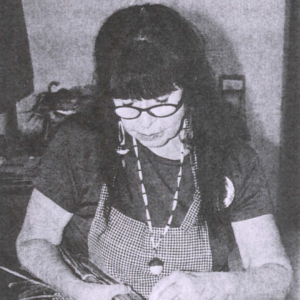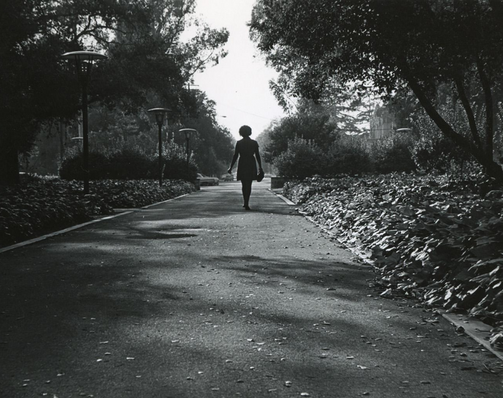
In honor of Women’s History Month, we’re commemorating the contributions of women throughout history and encouraging the study of women by highlighting women represented in The Claremont Colleges Library’s Special Collections and Archives.
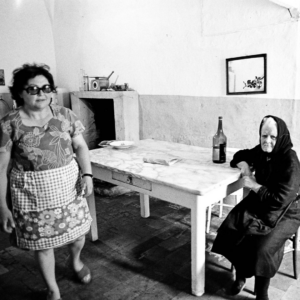
Elisa Leonelli is an Italian photojournalist who, in addition to working for major international media outlets such as the LA Times, Vogue and the Hollywood Foreign Press and covering the 1984 Los Angeles Olympics, specialized in travel photography and also captured images of people living their everyday lives. She has also been the Los Angeles correspondent for the Italian monthly Best Movie since 2005, editor of the Reynier Village Blog since 2009, and a regular contributor to Cultural Weekly since 2015. Leonelli donated her archival collection and digital collection of photographic essays to The Claremont Colleges Library in 2018 so that they may be made available to future generations of students and researchers. Explore the Elisa Leonelli Photographs and Essays Collection and browse the digital collection.
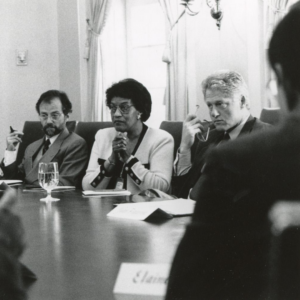
Myrlie Evers-Williams fought for justice for decades after her husband’s assassination, served as chairwoman of the National Association for the Advancement of Colored People (NAACP) and gave the invocation before a global audience of millions at President Barack Obama’s second inauguration. Now, at 90 years of age, the civil rights pioneer has donated her archival collection to her alma mater Pomona College to inspire future generations. The thousands of items, ranging from photos with U.S. presidents to campaign materials to congressional transcripts, offer tangible touchpoints of Evers-Williams’ – and the nation’s – turbulent journey toward justice through the Civil Rights Era. Learn more about the NEW Myrlie Evers-Williams ‘68 Collection.
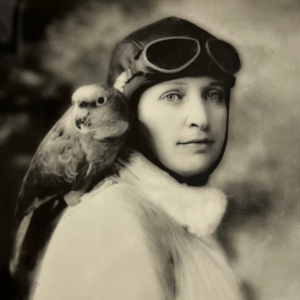
Born in Pennington, New Jersey, Elizabeth Lippincott McQueen (1878-1958) was a 20th century pioneer in women’s aviation. Inspired by her service in war relief during WWI, she began organizing events featuring women, including the Women’s Aeronautic Association of California in 1928, the Women’s International Association of Aeronautics and the Women’s First Air Derby Race in 1929, and was also deputized as the world’s first aerial policewoman that same year. FunFact: Although McQueen devoted her life to furthering the role of women in aviation, she never obtained a pilot’s license. Explore the Elizabeth Lippincott McQueen Papers.
Gabrieleño/Tongva Elder and educator Barbara Drake (1940-2020) was dedicated to introducing people of all ages “to seeing the natural world in different ways—as the center of all life, as cultural history, as storytelling, as tradition, as part of holistic community building.” She served as a cultural ambassador and visiting educator in Southern California Schools, museums and cultural heritage organizations where she worked tirelessly for the revival of reciprocal relations with the land and played a key role in Tongva cultural revitalization. Drake also taught workshops and classes, such as a Native Plants class, at the Idyllwild Arts’ Summer Program and Pitzer’s Leadership in Environmental Education Program (LEEP). Additionally, she served as a consultant on many botanical gardens, notably the Autry Museum of the American West and at Pitzer College. Please contact Special Collections and Archives to view the NEW Barbara Drake Collection.
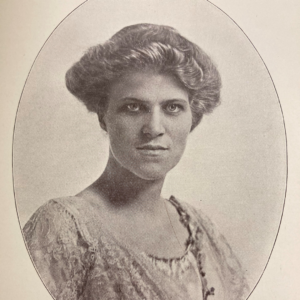
Viola Minor Westergaard (1888-1919) was a Danish American woman from Alameda, CA with a love of art. She studied at Mills Seminary and UC Berkeley, where she met and fell in love with Dr. Waldemar C. Westergaard. She came to Claremont when she married “Westy”, who was a Professor of History at Pomona College, in August of 1917. While there, the couple participated in the College’s affairs and she was lovingly bestowed the title of “The Viking Goddess” by Dr. Phebe Spalding, professor of English and art history and first librarian of Pomona College. Sadly, Viola perished two short years later during the influenza epidemic of 1919. After her untimely death, her parents and husband donated many of her personal art treasures, along with her Ward’s “A Line a Day” Book, to the Library. Her father, Captain Robert Minor, established the Viola Minor Westergaard Foundation in her name to support the arts at Pomona College. Explore the Viola Minor Westergaard Collection.
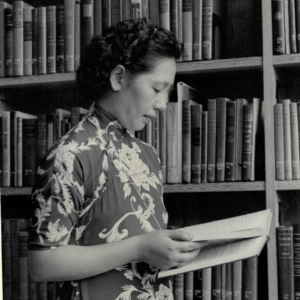
Anne Lee Yao 姚李勤芳 (1915-1971) began her librarian career in 1946 at the United States Information Service (USIS), Canton Office. In 1949, she and her husband, Norman Gan-chao Yao 姚淦潮, moved to Hong Kong. Anne oversaw the USIS Library at Kowloon, while Norman worked as the photographer at the American Consulate General in Hong Kong. In 1956, sponsored by the Claremont Church, the Yao family immigrated to Claremont, CA under the Refugee Relief Program. Anne continued her librarian career at The Claremont Colleges Library, serving patrons and cataloging Asian language materials as one of The Claremont Colleges Library’s first Asian-American librarians. Explore the Norman Gan-chao and Anne Lee Yao Papers and visit the Asian Library’s current exhibit on the Yao family’s journey to Claremont.
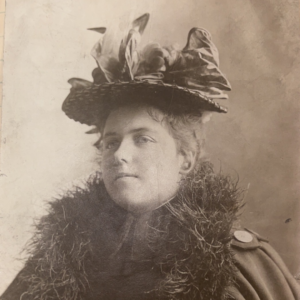
The Rude-Frankenfield Papers documents the daily lives of at least six generations of women from the family of Chester A. Rude – a former trustee of Claremont McKenna College – through correspondence, legal and personal papers, and ephemera dating back to the early 1800s.
Marion Parks was a talented and resourceful personality in Los Angeles during the early 1900s who described herself as “a California historian.” She wrote about local history and documented parades, historical pageants and other events in and around Los Angeles during the early 20th century. Parks produced a series of booklets as a publicity writer for Security-First National Bank and wrote articles for local publications, like the Historical Society of Southern California, and authored Doors to Yesterday: A Guide to Old Los Angeles. Explore the Marion Parks Papers.
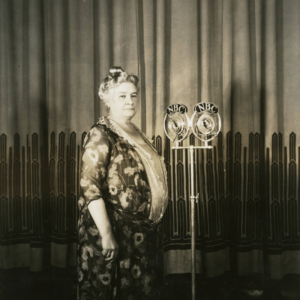
Jewish-Bohemian international opera superstar Ernestine Schumann-Heink (1861-1936) was known for her contralto voice, intricate singing technique and charitable spirit. She took an active role in performing for American military personnel and service organizations during and after World War I. After settling in California, she made extensive tours across America and was featured on a weekly radio broadcast. Her career spanned six decades all while raising seven children. Over her long career she collected more than 1,125 music manuscripts representing the work of 640 professional and amateur composers, including women composers such as Amy Beach, Marion Bauer, Carrie Jacobs-Bond and Fannie Charles Dillon and by lesser-known figures. Explore the Ernestine Schumann-Heink Collection and browse the digital collection.
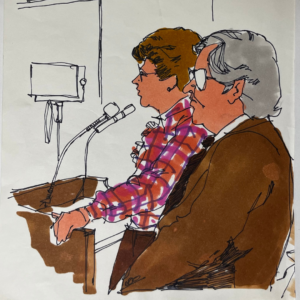 Darlene Ann Nicgorski (1943-2017) was an American nun, who, while on a missionary assignment in Central America, was convicted of harboring Guatemalan and Salvadoran refugees and sentenced to 5 years of probation, to which she replied: “If I am guilty of anything, I am guilty of living out the Gospel.” She continued to speak in support of the Central American plight for the remainder of her life and passed away in Pomona in 2017. Explore the Darlene Nicgorski Sanctuary Movement Collection.
Darlene Ann Nicgorski (1943-2017) was an American nun, who, while on a missionary assignment in Central America, was convicted of harboring Guatemalan and Salvadoran refugees and sentenced to 5 years of probation, to which she replied: “If I am guilty of anything, I am guilty of living out the Gospel.” She continued to speak in support of the Central American plight for the remainder of her life and passed away in Pomona in 2017. Explore the Darlene Nicgorski Sanctuary Movement Collection.
We hope you have enjoyed learning about these incredible and fascinating women. If you are interested in examining any of these materials, we invite you to make a Special Collections Reading Room appointment. Questions can be directed to specialcollections@claremont.edu or (909) 607-3977.
